10 Teensy Health Habits That Can Make A Huge Difference
Taking these small, surprising steps can help you live longer, better, happier.
By Corrie Pikul

Photo: Wavebreakmedia Ltd/Lightwavemedia/Thinkstock
Sit Up and Smile
You've heard that good posture can make you appear taller, thinner and more confident, and now research shows that it can make you feel happier. And "enthusiastic," "excited" and "strong," as well. Those are some of the words that straight-backed people used to describe their feelings in a New Zealand study of the effect of posture on mood. Other measurements, such as blood pressure and heart rates, showed that the people who were forced to sit up straight were more alert, and good posture was associated with higher self-esteem and less social fear. As for those who were instructed to slump: They reported feeling "fearful," "hostile," "nervous," "passive" and "sluggish." Previous research has shown that upright posture causes increased temperature and heart rate, as well as elevated epinephrine and norepinephrine. Sitting up seems to immediately give people a jolt.
Microchange: Set a timer to remind yourself to get up every 20 minutes. It's easier to completely reset your posture than to adjust it in your seat, says Steven Conway, a Wisconsin-based chiropractor and spokesperson for the American Chiropractic Association. Stand up, arch your back, twist from side to side and roll your shoulders back. When you sit down, scoot your bottom against the back of your chair, and focus more on pulling your shoulders back than keeping your back straight (putting a ball behind you can help).
Microchange: Set a timer to remind yourself to get up every 20 minutes. It's easier to completely reset your posture than to adjust it in your seat, says Steven Conway, a Wisconsin-based chiropractor and spokesperson for the American Chiropractic Association. Stand up, arch your back, twist from side to side and roll your shoulders back. When you sit down, scoot your bottom against the back of your chair, and focus more on pulling your shoulders back than keeping your back straight (putting a ball behind you can help).
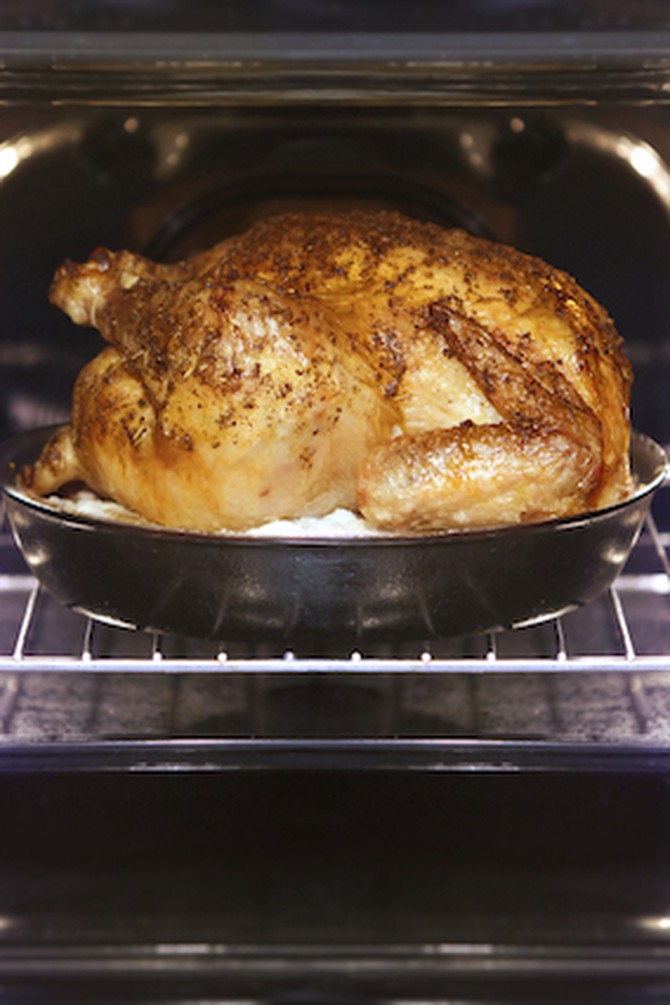
Photo: Thinkstock
Cook With a Dry Bird
About 90 percent of us (including Julia Child, back when she was still alive and cooking) still believe that rinsing excess juices off our chickens makes them cleaner, safer and more healthful. Turns out this couldn't be further from the truth—and last summer, food safety experts at Drexel University created a public service campaign to explain why. Rinsing forcefully dislodges illness-causing bacteria like salmonella. Tiny droplets can carry the germs as far as three feet away from the sink, contaminating food, utensils, countertops, highchairs, your clothing, hands and skin. The only thing that can kill these germs (and make your meat safer) is cooking at a high temperature (the magic number, which you probably have memorized, is 165 degrees).
Microchange: Cook your chicken without washing, or pat it first with a dry paper towel, which, unlike rinsing, doesn't send bacteria flying into the air (just remember to immediately toss the towel into the trash).
Microchange: Cook your chicken without washing, or pat it first with a dry paper towel, which, unlike rinsing, doesn't send bacteria flying into the air (just remember to immediately toss the towel into the trash).
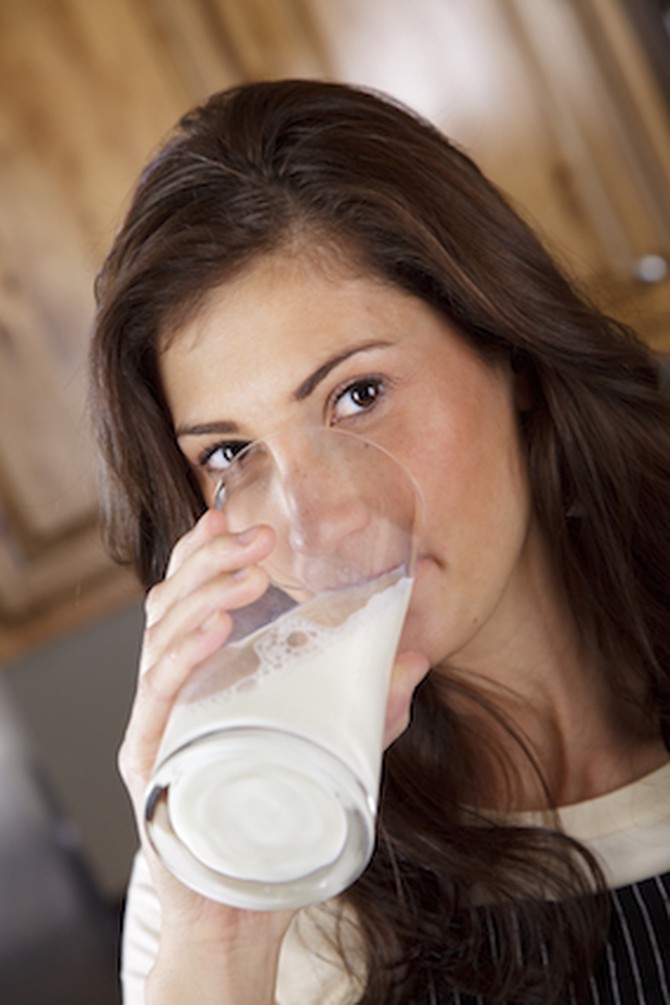
Photo: Thinkstock
Snack on Milk
We're so used to taking our lattes "skinny" that if you don't, it almost feels as if you're announcing to the coffee shop that you'd like a mug full of fat to go along with that cookie you just ordered. But scientists have started to seriously question skim milk's health benefits. Switching from reduced-fat to nonfat milk hasn't been linked to weight loss, and, in multiple studies, children who drank 82-calorie skim were more likely to gain weight than those who drank the full-fat version. One explanation? Fattier milk increases satiety, decreasing the chances of eating something less healthy later on.
Microchange: Go for reduced-fat, 2 percent milk (122 calories and almost 5 grams of fat), but consider it as part of your snack, not the drink that goes with the snack. Whole milk (146 calories and almost 8 grams of fat) is pretty rich—but still less indulgent than a cup of skim milk and two cookies (239 calories and 9 grams of fat).
Microchange: Go for reduced-fat, 2 percent milk (122 calories and almost 5 grams of fat), but consider it as part of your snack, not the drink that goes with the snack. Whole milk (146 calories and almost 8 grams of fat) is pretty rich—but still less indulgent than a cup of skim milk and two cookies (239 calories and 9 grams of fat).

Photo: Thinkstock
Have A Savory Morning
The American Heart Association recommends that women consume no more than 100 calories (or about six teaspoons) a day of added sugar. Seems doable, right? Except surveys have found that the average American consumes more than three times that amount—22.2 teaspoons of added sugar every day—and we eat a significant amount of it before we're even lucid enough to put in our contact lenses. Healthy-seeming bran flakes and granola can top out at five teaspoons of sugar (milk adds another two), and a packet of instant oatmeal has around two to three teaspoons.
Microchange: If you switch to an unsweetened breakfast of eggs (over easy with turkey bacon; scrambled with broccoli), you'll eat five to six times less sugar than if you simply drink your coffee black (although you can do that, too). Bonus: The extra protein might make you feel fuller longer, eliminating your craving for a 10 a.m. bear claw.
Microchange: If you switch to an unsweetened breakfast of eggs (over easy with turkey bacon; scrambled with broccoli), you'll eat five to six times less sugar than if you simply drink your coffee black (although you can do that, too). Bonus: The extra protein might make you feel fuller longer, eliminating your craving for a 10 a.m. bear claw.
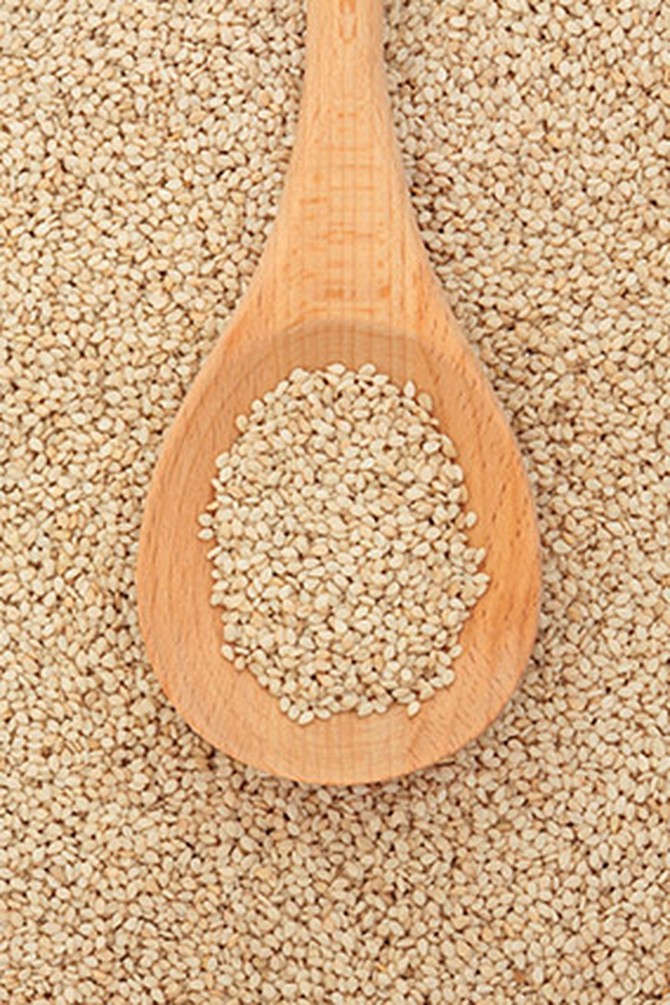
Photo: Thinkstock
Vary Your Grains
Two recent studies from the U.S. Food and Drug Administration and Consumer Reports confirmed potentially dangerous levels of cancer-causing arsenic in rice and rice products. Arsenic is found in soil and groundwater, and rice has been shown to naturally soak it up and store it more than other types of grains, fruits and vegetables do. Considering that people eat the equivalent of about 2 cups of cooked rice a week, according to the Centers for Disease Control, our risk of arsenic exposure is pretty high. The FDA stops short of recommending limiting rice consumption but Consumer Reports suggests including alternative grains in our diet.
Microchange: Try quinoa, barley, polenta, couscous and bulgur wheat, as well as that Indian recipe you stuck on your fridge months ago (aromatic rices like basmati and jasmine showed about half to one-eighth the level of arsenic as rice grown in the southern United States). When you do eat brown rice, be sure to treat it like pasta and rinse it in plenty of water.
Microchange: Try quinoa, barley, polenta, couscous and bulgur wheat, as well as that Indian recipe you stuck on your fridge months ago (aromatic rices like basmati and jasmine showed about half to one-eighth the level of arsenic as rice grown in the southern United States). When you do eat brown rice, be sure to treat it like pasta and rinse it in plenty of water.

Photo: Thinkstock
Keep In Touch With Your Ob-Gyn
Under new guidelines, it is now recommended that women older than 30 get a Pap smear only every three years. But a lot can happen in three years (who remembers what they were doing at this time in 2009?). Besides, the American College of Obstetricians and Gynecologists still suggests visiting your ob-gyn every year so she can do a pelvic, breast and abdominal exam; answer questions about STDs, birth control and age- and lifestyle-related concerns; and suggest diagnostic tests (cancer screenings, fertility testing, etc.).
Microchange: Give up trying to remember whether or not you got a Pap smear three years ago and schedule a wellness exam every year on your birthday (that way, you'll never forget). Good news: Under the Affordable Care Act, annual wellness visits should be covered by insurance.
Microchange: Give up trying to remember whether or not you got a Pap smear three years ago and schedule a wellness exam every year on your birthday (that way, you'll never forget). Good news: Under the Affordable Care Act, annual wellness visits should be covered by insurance.
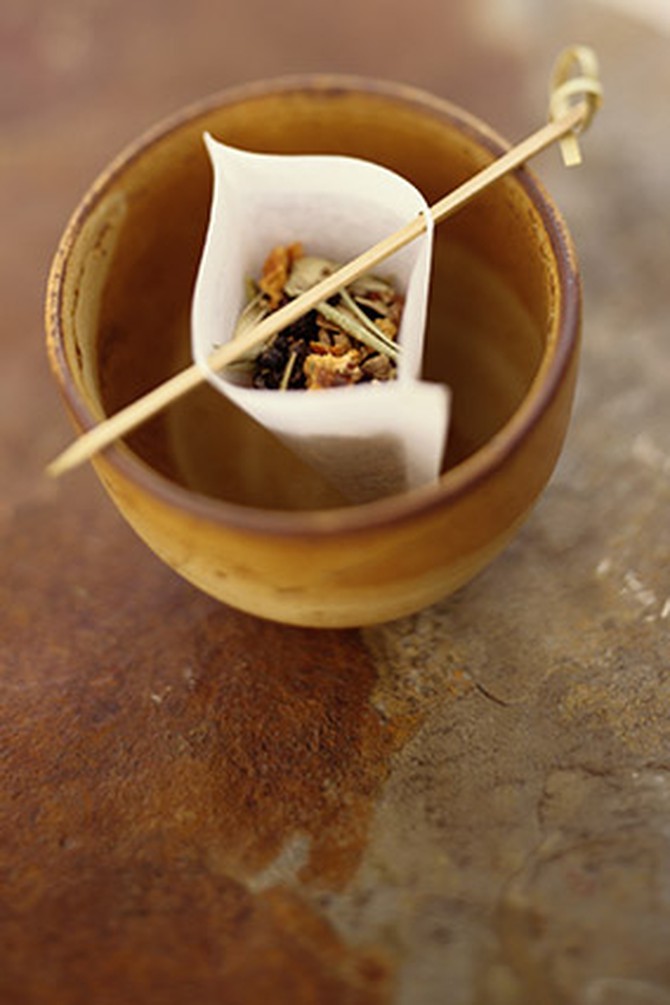
Photo: Thinkstock
Drink Your Tea Black
The good news: Antioxidant-rich black tea has been shown in studies to significantly improve vascular function. The bad news (especially for Brits and those who sip like them): Adding milk to your tea basically cancels out those benefits, found a study published in European Heart Journal. The researchers speculated that the milk proteins bind with the tea's antioxidants, neutralizing their effects.
Microchange: If you can't stomach Earl Grey black, try switching to green tea, which is traditionally taken plain, without milk or even sugar or honey.
Microchange: If you can't stomach Earl Grey black, try switching to green tea, which is traditionally taken plain, without milk or even sugar or honey.

Photo: Thinkstock
Eat Your Reds
No one has to remind you of the importance of green, leafy vegetables, but what about red, round fruit—specifically, tomatoes? This star of Italian-American cuisine and a darling of home gardeners is off the charts in lycopene, an antioxidant compound that has been linked to a reduced risk for cancer, cardiovascular disease and macular degeneration. Recently, a study published in the journal Neurology suggested that high levels of lycopene in the blood may offer protection against strokes. Finnish researchers followed more than 1,000 men ages 46 to 55 and found that those with the highest levels of lycopene were 55 percent less likely to have a stroke than those with the lowest levels. Interestingly, it may be easier for the body to absorb lycopene from cooked tomato products (especially those with a small amount of oil or fat) than from raw tomatoes.
Microchange: Pizza Fridays!
Microchange: Pizza Fridays!
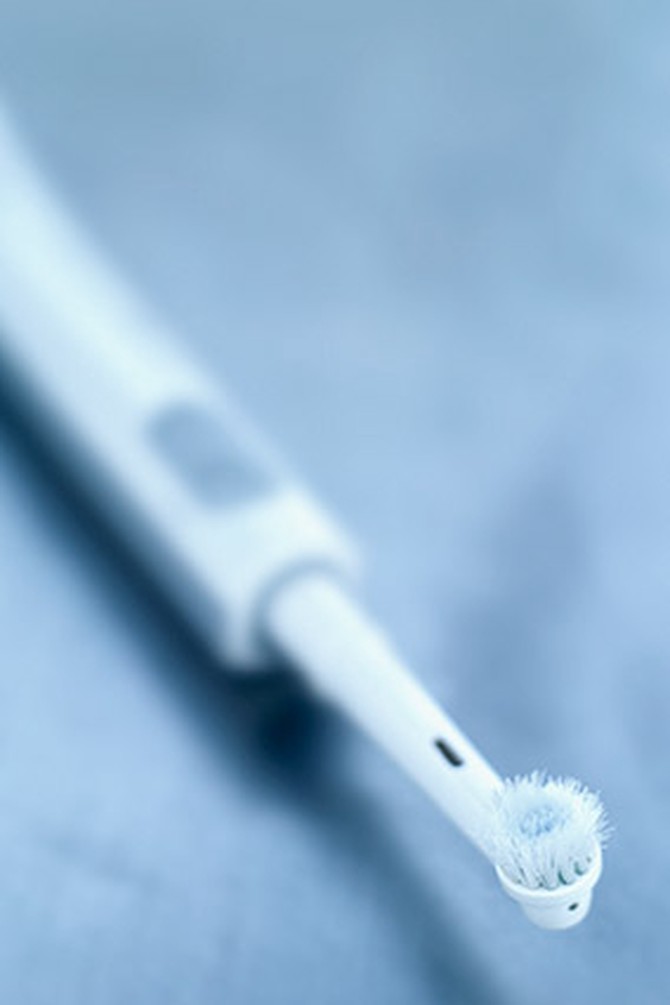
Photo: Thinkstock
Change Your Toothbrush Head When You Change Over Your Closet
The American Dental Association recommends replacing the head your electric toothbrush as often as you'd toss your old-fashioned manual toothbrush: every three months. But because the round bristles may not show physical wear as quickly or as obviously as the toothbrushes of your youth, you may forget to upgrade until the head is practically ready to spin off the handle.
Mircochange: It's much easier to piggyback a new habit onto an old one than it is to create a new habit from scratch, explains New York Times reporter Charles Duhigg in his book The Power of Habit. So consider replacing your toothbrush head when, say, you’re updating your closet for the new season’s weather, filing expense reports or going through quarterly receipts.
Mircochange: It's much easier to piggyback a new habit onto an old one than it is to create a new habit from scratch, explains New York Times reporter Charles Duhigg in his book The Power of Habit. So consider replacing your toothbrush head when, say, you’re updating your closet for the new season’s weather, filing expense reports or going through quarterly receipts.
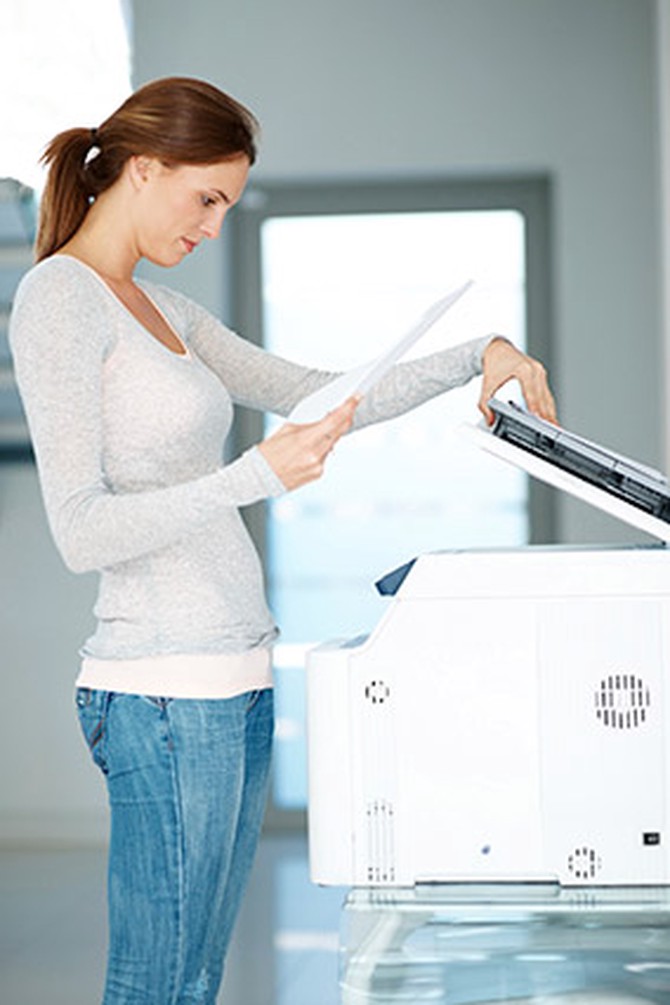
Photo: Thinkstock
Force Yourself to Do Laps Around The Office
There are times—dark, unsafe-feeling times; damp, rainy times—when it's not worth parking in the Siberia spots of the parking lot to squeeze in a few more of the 10,000 daily steps we've all heard we should aim for.
Microchange: Chances are, the most remote corner of your office remains safe and dry no matter what's going on outside, so adjust your computer settings to always send your documents to the printer there. If you're trying to save trees (another commendable habit), skip the printing and journey to a faraway bathroom instead.
Next: More little tweaks to improve your health
Microchange: Chances are, the most remote corner of your office remains safe and dry no matter what's going on outside, so adjust your computer settings to always send your documents to the printer there. If you're trying to save trees (another commendable habit), skip the printing and journey to a faraway bathroom instead.
Next: More little tweaks to improve your health
Published 12/01/2014

